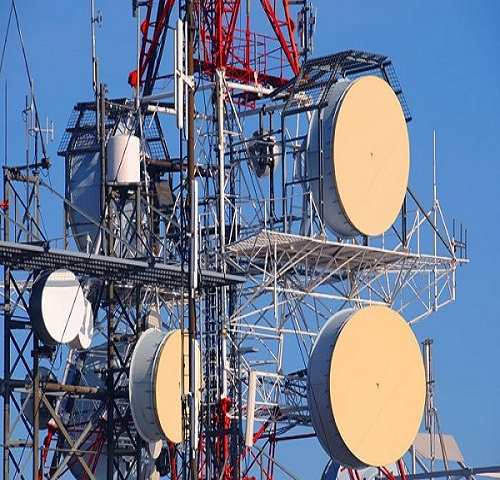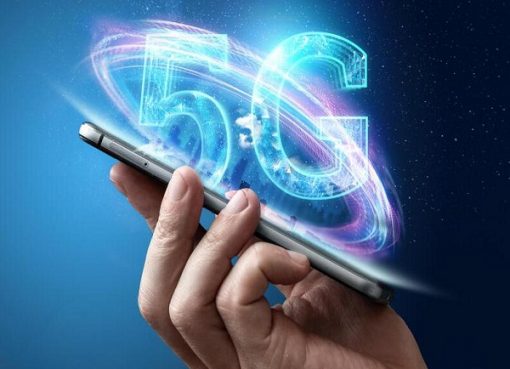Telecommunications network infrastructure such as cables, satellites, cellular towers, base transceiver station (BTS) plays an important role in maintaining the stability of society worldwide. The protection of these critical infrastructures and their supporting structures become highly challenged to both public and private organisations. The interdependency of these infrastructures makes it essential in protecting them.
Data from the Nigerian Communications Commission (NCC) showed that the sector recorded over 33,000 cases of vandalism and stealing of facilities in a particular year.
While the attacks cut across the six geo-political zones of the country, an MTN official, who preferred anonymity, told The Guardian that such incidents are more prevalent in the SouthEast region.
The upsurge in attacks has necessitated serious appeals by the NCC to consumers of telecoms services to take up the gauntlet and protect communication infrastructure in their domains.
This issue came to the fore at the maiden edition of the ‘Telecoms Consumer Conversation—Village Square Dialogue,’ held in Abeokuta, Ogun State, organised by the NCC.
At the forum, NCC Executive Commissioner, Stakeholder Management, Adeleke Adewolu, said one of the most important responsibilities of the commission is to protect consumers’ interests.
He said to do this effectively, the commission articulated a PIE Mandate, which enables it to Protect, Inform and Educate consumers of telecoms services wherever they may be in Nigeria.
Adewolu said NCC use several mediums for this, one of the most important of which are outreach events such as the Telecoms Consumer Parliaments, Telecoms Consumer Town Hall Meetings, Online engagement media, and Consumer Conversations with various strategic segments of telecoms consumers such as professionals, students, markets, among trust.
He said the commission recently reviewed these engagements and felt the need to organise a Village Square Dialogue with telecommunications subscribers and other esteemed stakeholders of the telecoms industry “so that we can engage with consumers at the grassroots to resolve their challenges, and to provide them with relevant information on issues affecting the seamless operations of our very dynamic industry.”
Telecoms as infrastructure
Adewolu said telecoms services have long been recognised as the easiest and cheapest means of meeting critical socio-economic needs such as education, financial inclusion, economic empowerment and deepening social interactions.
“Without telecoms infrastructure, we cannot communicate with friends and family over long distances at the touch of a button, and we cannot conduct banking, insurance, government services, education, entertainment, among others with ease. This means that telecoms infrastructure are critical to modern existence, and we must all do what we can to ensure that we tackle anything that affects their seamless operation. Issues like hostile communities, diesel theft, batteries and power generators, digging up fiber lines, sealing/locking-up of BTS sites and such other illegal activities must be tackled decisively by all of us.”
While urging strict surveillance of these infrastructure, Adewolu urged the people to see “telecoms infrastructure as your own and protect them as communal property. Anybody that tampers with telecoms infrastructure is tampering with your future and the future of your children – they should be resisted and reported.”
Status of infrastructure
The Guardian checks showed that as at February, Nigeria can boast of 303 million connected telephone lines, while 198 million are active with teledensity of 103.79 per cent, which has been enabled by close to $80 billion investments. While we have 78, 082.273 broadband users, Internet surfers are however 143.6 million.
According to the 2020 Year End Subscriber Network Data Report, it can be deduced that the about $80 billion investment in the sector, has helped the industry to erect 32, 939 BTS (47,061 short of the 80,000 target for the country). The country has 290, 126.59km microwave coverage; 104, 586.34km fibre optic deployment (terrestrial and submarine cable).
The statistics showed that Lagos leads with 5,686 towers, Ogun 1,834; Oyo 1,761; Rivers 1,720, FCT 1,495 and Edo 1,270.
On the bottom five, Jigawa led states with the lowest number of towers with 329. It was followed by Ebonyi 311, Gombe 295, Yobe 248 and Zamfara 248.
Impact of vandalisation on infrastructure
According to the NCC Executive Commissioner, continuous damage of telecoms infrastructure will reduce Quality of Service/Quality of Experience.
Adewolu informed that vandalism discourages investment in network expansion by Operators. He stressed that operators will see as less viable for further investment should their infrastructure be continuously vandalized or stolen.
He added that this will negatively impact the investment climate in Nigeria by way of Foreign Direct Investment and subsequently lead to reduction in rate at which new job opportunities are created in the telecoms sector as investment will be impacted.
The Guardian reliably gathered that fibre cut menace has increased over 60 per cent since 2016. Besides, about 10,000 generating sets were said to have been lost to miscreants in one year.
Consumers’ roles in infrastructure protection
Speaking on the roles of residents in the protection of telecoms infrastructure, NCC’s Director, Consumer Affairs Bureau, Efosa Idehen, who said telecoms infrastructure means any part of the infrastructure of a telecommunications network, including any line, equipment, apparatus, tower, antenna, tunnel, duct, hole, pit or other structure used, or for use, on or in connection with a telecommunications network, noted that they connect networks to towns, cities and countries.
Idehen enjoined consumers not to damage telecoms infrastructure; allow installation of equipment and maintenance/repairs on sites by technical staff of service providers for quality Telecoms service delivery and do not extort money from them; guard against their destruction through prompt notification of service providers on any ongoing road construction activities by companies or government agencies to avoid service disruption or interference in service.
He appealed to consumers to report cases of vandalism to the nearest law enforcement agents (Police, Nigeria Security and Civil Defence Corps.); share adequate information to your family, friends, neighbours and in accordance with the information and materials provided by the NCC, and “together let’s work with Law Enforcement Authorities on the protection of Telecoms infrastructure in your community.”
With appeal going to the National Assembly to pass the CNI bill into law, after almost one and half decades of debate, telecoms expert, Olusola Teniola, said it has become imperative that all telecoms facilities in the country are deemed critical national assets and are protected by CNI law, so that QoS is not degraded beyond the point whereby citizens in the impacted areas are not able to make a voice call in order to reach their loved ones or even carry out day-to-day business.
Teniola, a former ATCON president, said damage to the facilities will cost more to repair and “inevitably these associated costs are passed onto the consumers in affected areas.”
With such cases becoming frequent in the country, Teniola said: “It makes it even harder for the government to achieve the 70 per cent broadband penetration target for 2025 and makes it a particular challenge by operators to keep services ongoing under tough circumstances.”
Source: Guardian










